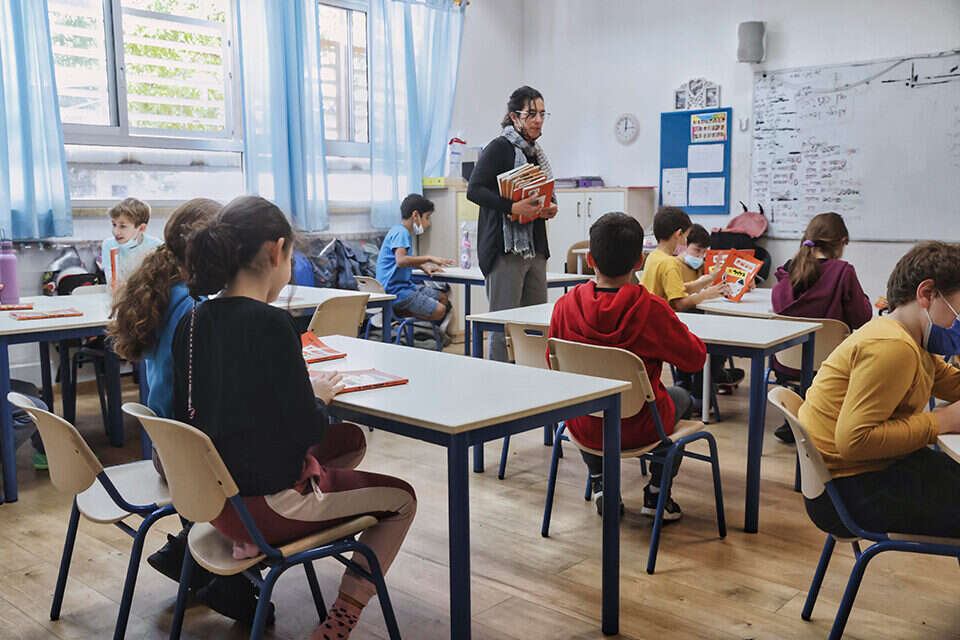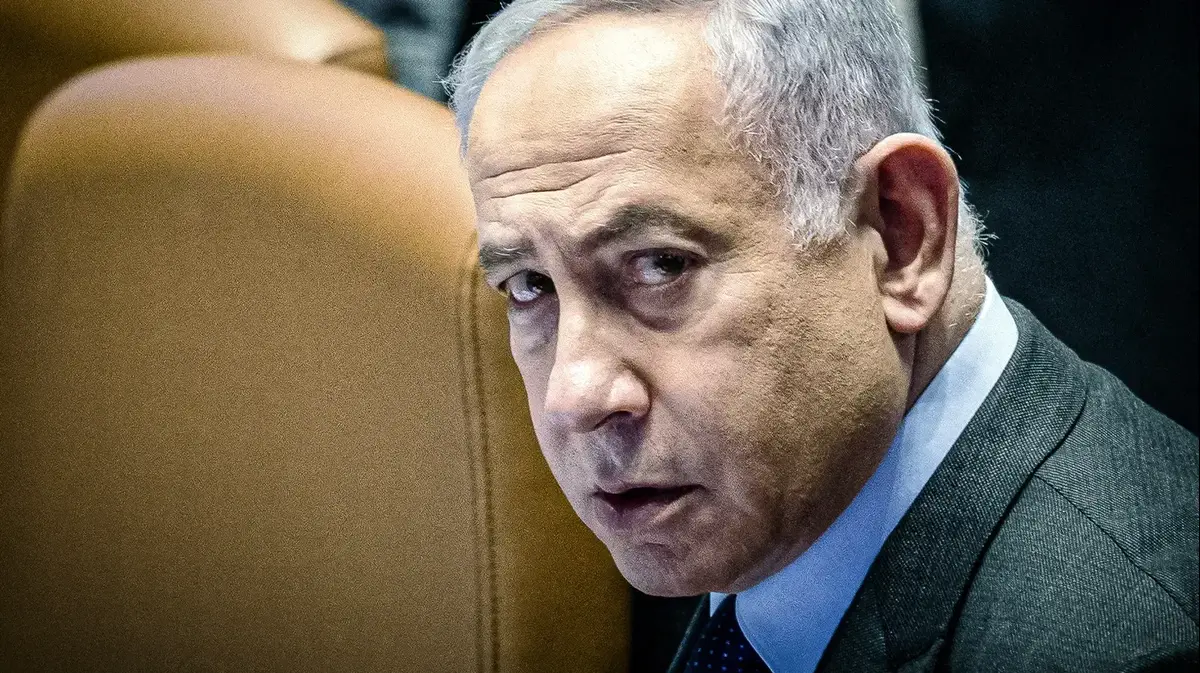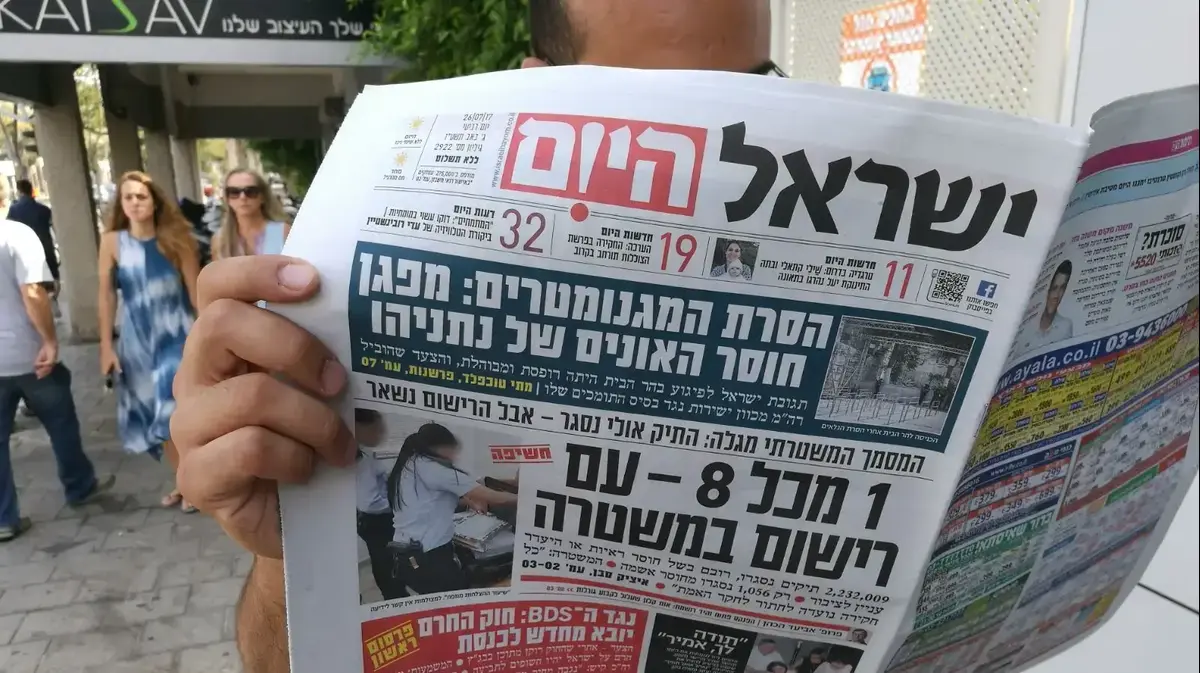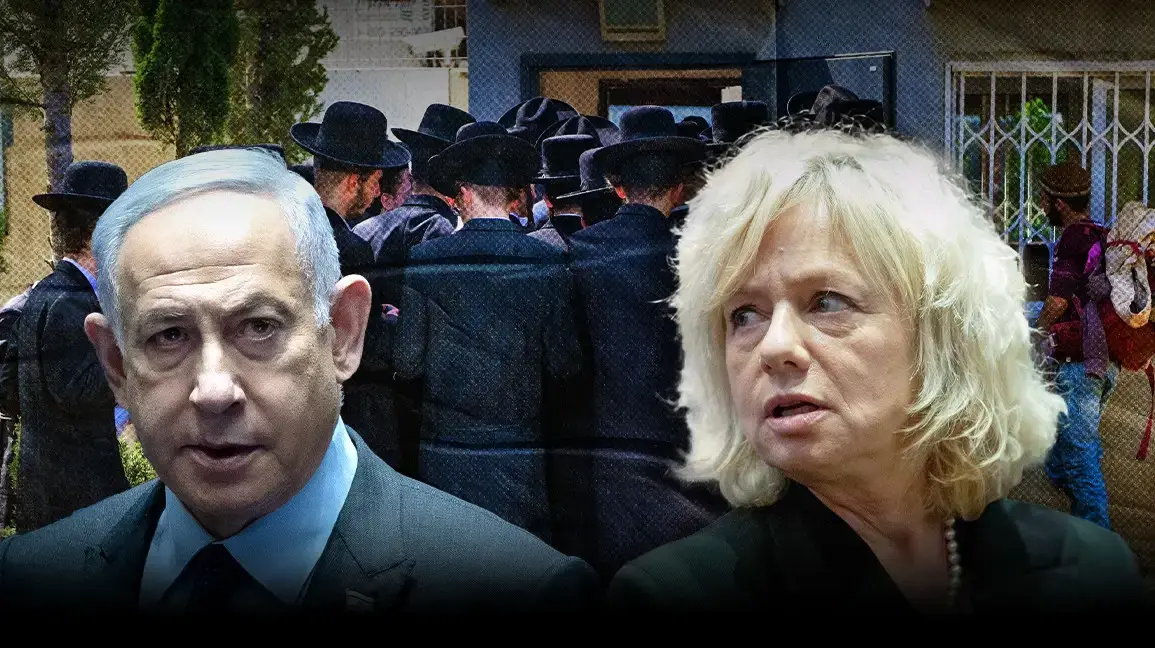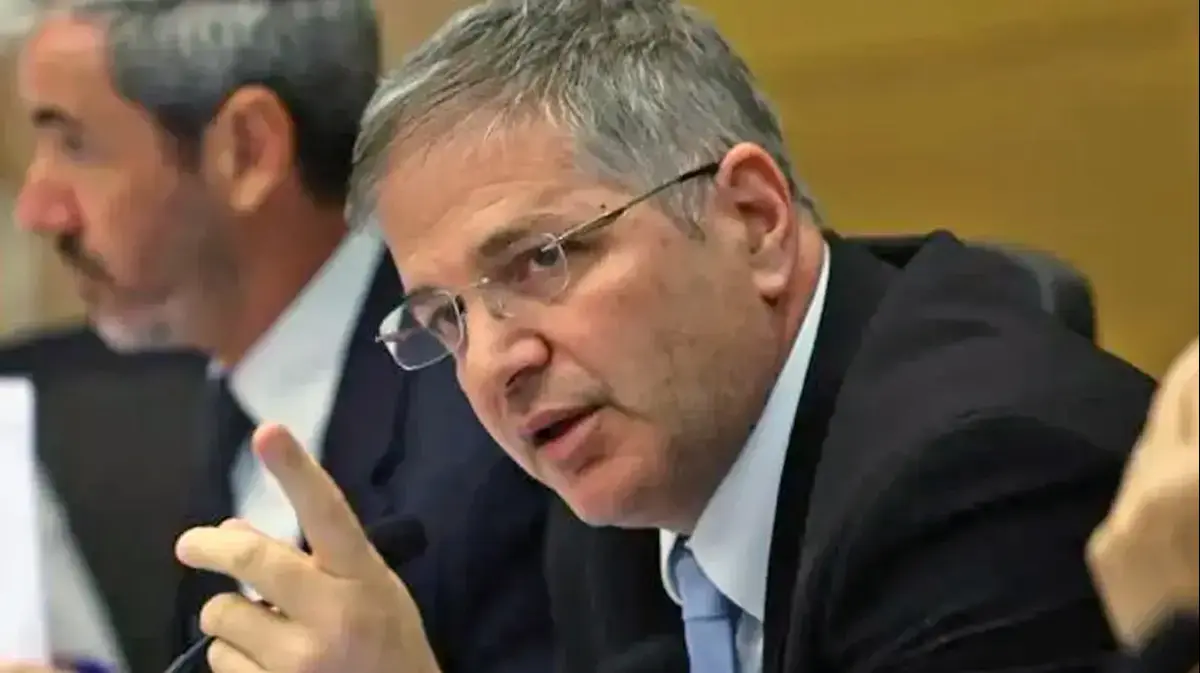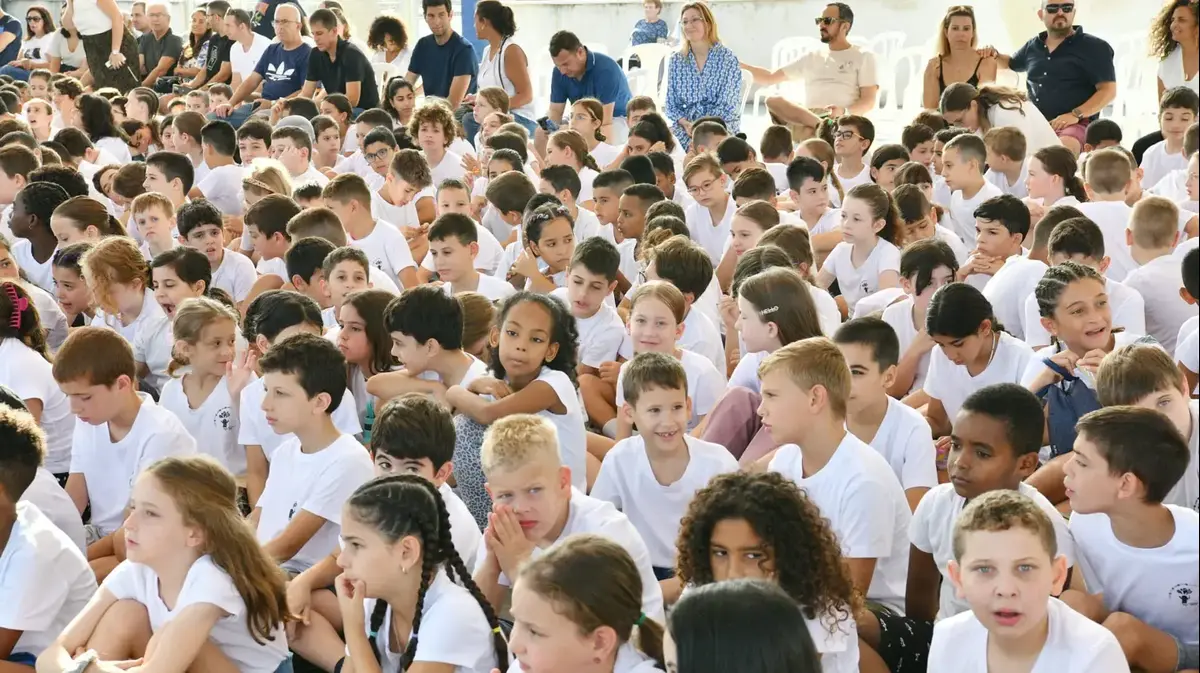Transferring more than NIS 2 billion to Haredi educational institutions and funding schools in the state education system that teach all subjects as required by the Ministry of Education and Haredi schools that do not teach subjects such as English, math and science (or teach sparingly) will lead to the elimination of state education, the education system warns.
According to them, the new budgeting model is liable to lead to an absurd situation in which entire groups – usually powerful and wealthy populations – will seek to withdraw from state education in favor of private institutions, and demand full funding from the state for institutions that are not supervised on the basis of Haredi precedent. Such a situation is liable to turn the state Hebrew education system, the main flagship of Israel's education system, into a more limited and severely weakened stream.
For years, the State of Israel has tried to get Haredi students to study subjects such as English, math and science – on the assumption that this will enable them to integrate into the labor market. The Ministry of Education even set a kind of "condition" – the more core subjects they study (subjects intended to serve as a common basis for all elementary education institutions), the more budgets they will receive. However, the coalition agreements "broke" the equation.
Average annual budgeting per student from the state, photo: info
NIS 1.2 billion will be allocated to raising teachers' salaries in Haredi education, but there will be no employer-employee relationship between them and the Ministry of Education. In addition, under the education clause, NIS 120 million will be transferred to reinforcing Haredi education in exempt institutions, NIS 170 million to calls for proposals in Haredi society, NIS 50 million intended only for after-school programs in recognized non-official institutions, and exemption – that is, Haredi institutions, and more.
This transfer of budgets disturbs not only the citizens who came out to protest against it, but also the Finance Ministry itself. The coalition finance document states that "the implementation of the draft resolution in the current version will significantly reduce the preference for official education over non-official institutions, completely eliminate the budgetary preference of state education compared to ultra-Orthodox education networks, and will lead to a direct impact on public education and the skills of graduates of the education system."
Attorney Liat Klein, director of the Religion and State Department at Neemanei Movement and Labor, a religious Zionist organization that works for equality and prevention of radicalization in the religious public, says: "There is harm here to the secular and state-religious public. First of all at the level of discrimination, because they give everyone an equal basket, but the requirements are not the same." According to her, this could mean the end of the public education system: "It could cause economically strong populations to open schools for themselves with small classes, comfortable conditions and subjects they choose to study. A principal in Tel Aviv, for example, will establish a school that will not be subject to the rules but will require full funding. It will be very difficult to stop her, because when she goes to the High Court of Justice she will see that there is a precedent and that it exists in the ultra-Orthodox sector. This undermines the education system in Israel, and in the end those who will be harmed will be the weaker populations who will not be able to go to private schools."
Photography (illustration), Photo: Nati-Shutaach / Flash90
According to Aviad Huminer, deputy director of the Berl Katznelson Foundation, a research and policy institute that deals with education, among other things, "This is a break with the disciplinary ethos that says that in order to receive a full government-public budget, you have to meet public state standards. This is the final nail in the coffin of public state education." He further claims: "The Education Law states that education must be provided by the state without any connection to a party body, in practice there are two large parties here, Torah Judaism (independent education) and Shas (Bnei Yosef – a kind of Torah education) that established private schools that the state funds without imposing regulation or supervision and whose graduates go out into the world without minimal tools – this is a catastrophe for Israeli society."
Education budgets are divided by tribes
The coalition agreements in the current government provide a glimpse into the struggles in the education system. The Israeli education system is no longer a uniform education system, in fact it consists of four streams, parallel to the different tribes in Israeli society.
The state stream, which is considered "secular," which today constitutes the majority, alongside the state-religious stream, that is, the knitted kippahs, which operates as an independent entity in the Ministry of Education and has its own professionals who decide on the content and budgets.
State budgets for educational projects, photo: info
Alongside them are the Arab Israeli sector and Haredi students, many of whom study in private institutions of educational networks that do not teach core subjects. Each of these groups is fighting for budgets and trying to apply leverage.
The battle between state education and state-religious education can be clearly seen in budgets. As for the Ministry of Education budget itself (not the coalition agreements) at all age levels, a student from the State-religious system is budgeted at a higher sum than his peer in the State education system ("secular"). The peak is in high schools, when a "secular" student is budgeted at NIS 32,799 compared to NIS 41,408 per student in a religious state – a gap of more than NIS 8,5 in favor of the knitted students. In middle school, a "secular" student is budgeted an average of 27,31 shekels, while a "knitted" student is budgeted 6,18 shekels (a low nurture index), and in elementary schools, the average per student in a religious state is 515,16, compared to 631,<> shekels in the "secular" stream.
Bezalel Smotrich, Photo: Sarya Diamant
Upon taking office, Finance Minister Bezalel Smotrich promised principals from the national-religious education system more budgets and support: "God willing, in the upcoming budget, we will dramatically reduce tuition fees for parents in Religious Zionism." Indeed, within the framework of the coalition budgets, Smotrich transferred quite a few budgets to the public from which he comes. For example, NIS 85 million will go to the State-religious education networks under "A Response to the Characteristics of State-Religious Education," NIS 20 million to Chabad seminars, and NIS 10 million to the legacy of Rabbi Chaim Meir Druckman, one of the leaders of the State-religious community who passed away last year.
For what seems likely to go to non-religious state education, there is 62 million shekels for elementary and middle school reinforcements – but this is a drop in the ocean compared to the size and number of institutions. Although the budget for elementary and middle schools in the Ministry of Education budget increased, most of the increase is derived from the growth of the system, especially since the Ministry of Education budget cuts the budgets for various projects.
Letter to the Minister of Education
Over the weekend, educators, academics, teachers and others sent a letter to Education Minister Yoav Kish, writing to him: "We call on you to join us in the rearguard war over all aspects of public-state education and to prevent the catastrophe that will befall us with the transition to private-sectoral education." According to them, the budgets planned to be transferred to institutions that are not in the state stream will prevent entire generations of children from basic studies in mathematics, science and languages, and will undermine the common moral basis of values. "If we want life, we must fight with determination and perseverance to place public-state education at the top of the national priority list. We ask that you make your voice heard clearly and loudly, and call on all factions and religions to integrate into public-state education."
The minister's office has not yet received a response.
Wrong? We'll fix it! If you find a mistake in the article, please share with us

